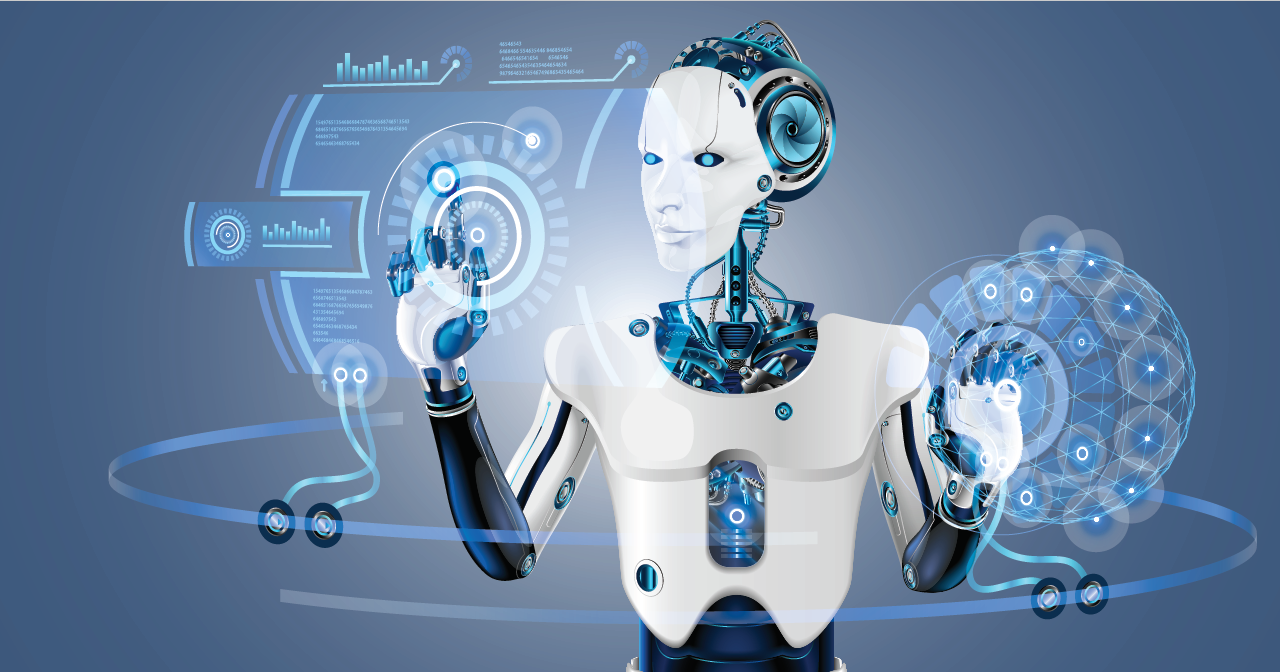In a time of innovation and technological progress, industries have undergone a transformation. Leading players across various industries have recognized the potential of automation and robotics to simplify processes, increase productivity, and achieve a competitive edge in the marketplace. Robotics is the key to this transformation. This is a field that encompasses robotic design, construction, and integration across numerous industries.
Understanding Robotics and Its Applications
Robotics is an academic and engineering field that concentrates on robot design, construction, use, and operation. Robots are devices that complete tasks independently or with human assistance. They can execute repetitive or intricate actions frequently in environments that pose dangers or challenges for humans.

The field of robotics extends beyond automation. It embraces an array of applications with the aim of revolutionizing industries and improving the lives of humans. Robots are making their way into many domains from manufacturing to healthcare logistical, entertainment, and logistics. They are able to provide an array of new opportunities.
The Rising of Automation: A Paradigm Shift
The industrial revolution of today is based on automation, and robotic automation, in particular. The integration of automated systems has drastically changed the way businesses run. They optimize processes and boost efficiency. Automation is the process of allowing robots or machines to do tasks without human intervention, utilizing technology to improve efficiency, speed, and precision.
The term “robotic automation” involves the use of robots to complete tasks that were traditionally performed by humans. They resemble human behavior and are therefore versatile across sectors. Robots are revolutionizing how people work.
Robotic Process Automation (RPA) Achieving the highest Efficiency
Robotic Process Automation (RPA) is an aspect of automation that involves the utilization of robots to automate repetitive, rule-based processes within business processes. RPA employs software robots or “bots” that perform routine operations. Human employees are able to concentrate on more complicated tasks.
RPA integration has become an industry-wide game changer, bringing cost-efficiency, agility, and accuracy to business processes. RPA transforms workflows in different industries, from data entry to the processing of invoices and HR functions.
Advancing Industries with Fanuc Robots
Fanuc is one of the most prominent players in robotics. They specialize in developing integration, installing, and integrating robots in various industries. Fanuc robots are known for their accuracy, reliability, and flexibility, which makes them a popular choice across many industries.
By integrating Fanuc robots into industries, they can transform their business processes. These robots are engineered to improve throughput, ensure high standards, and improve overall efficiency. Fanuc’s revolutionary solutions have been created to enhance safety by removing workers from dangerous work.
Fanuc Advantage: Driving Competitiveness
Fanuc robots can be a fantastic opportunity to make an impact in your market. Fanuc robots can increase efficiency and productivity, which leads to a faster ROI. By automating repetitive and labor-intensive tasks, companies can shift human resources to tasks that require creativity, problem-solving, and critical thinking, ultimately fostering innovation and growth.
Fanuc also provides solutions that are robotized that are tailored to the needs of each industry. The innovative approach of Fanuc in designing and using robots allows for industries to stay ahead of their competitors and enjoy sustained growth.
A Glimpse into the Future
Robotics and automation are expected to keep growing as technology improves. Future developments may include enhanced artificial intelligence, enhanced sensors, and increased collaboration between robots and humans, all contributing to a more seamless and efficient working environment.
Final conclusion: the integration of automation and robotics with automation, including Robotic Process Automation, and Fanuc robots are revolutionizing industries. They propel them into the future. The gains from robots have enabled businesses to not only thrive in today’s competitive landscape but also to explore new avenues of technology. We are at the beginning of a brand new era and the impact of robotics, automation, and artificial intelligence is sure to be felt for the foreseeable future.
